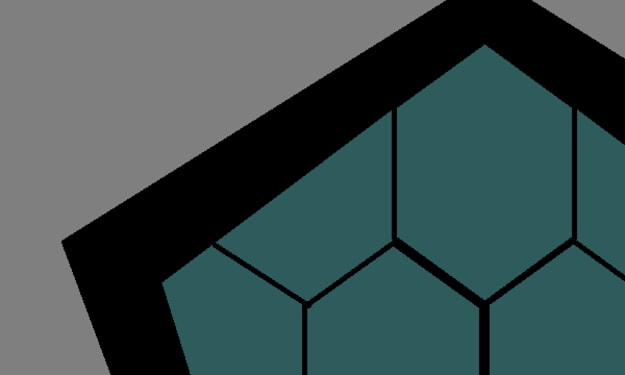Content warning
This story may contain sensitive material or discuss topics that some readers may find distressing. Reader discretion is advised. The views and opinions expressed in this story are those of the author and do not necessarily reflect the official policy or position of Vocal.

“Elites” is a term used to describe individuals or groups within a society who hold a disproportionate amount of power, influence, wealth, or status. These individuals or groups often have a significant impact on the social, political, and economic dynamics of a society. Here are some key points to understand about elites:
Types of Elites: Elites can be categorized into various types, including economic elites (wealthy individuals or corporations), political elites (those in government or positions of political power), cultural elites (influential figures in the arts, media, or academia), and social elites (those with high social status or privilege).
Power and Influence: Elites typically have the ability to shape and control the decisions and direction of society. This can include influencing government policies, shaping public opinion through media ownership, and controlling economic resources.
Access to Resources: Elites often have greater access to resources such as education, healthcare, and opportunities for advancement. This can result in a perpetuation of inequality within a society.
Social Stratification: Elites are often at the top of social hierarchies, and their positions can be inherited or acquired through various means, including wealth, education, and social connections.
Inequality: The concentration of power and resources in the hands of a small elite can contribute to income inequality and social disparities within a society.
Political Influence: Political elites can hold positions in government, including elected officials, bureaucrats, and advisers, which allows them to make decisions that impact public policies and laws.
Cultural Influence: Cultural elites, such as artists, writers, and media moguls, shape public discourse and influence societal values and norms through their work.
Critiques: The concept of elites is often critiqued for its potential to concentrate power in the hands of a few and perpetuate social inequalities. Critics argue that this can lead to policies that primarily benefit the elite class.
Democracy and Accountability: In democratic societies, the influence of elites is ideally balanced by mechanisms of accountability and representation. However, concerns about the undue influence of elites on politics and policy remain a topic of debate.
Changing Elites: Elites are not static; they can change over time due to social, economic, and political shifts. New elites may emerge, and the composition of elite groups can evolve.
Understanding the role and impact of elites in a society is a complex and multidisciplinary topic, and it often intersects with discussions about governance, social justice, and the distribution of resources and opportunities.
The darkest side of elites refers to the negative consequences that can arise when a small, privileged group of individuals or entities amass an excessive amount of power, influence, and wealth. This concentration of power and resources often leads to a range of societal and global impacts, including:
Wealth Inequality: Elites typically control a significant portion of a nation’s wealth, which can result in extreme income and wealth inequality. This inequality can contribute to poverty, social unrest, and a lack of economic opportunities for the majority of the population.
Political Corruption: Elites may use their wealth and influence to shape political processes, often through lobbying, campaign donations, or even direct involvement in government. This can lead to policies that primarily benefit the elite at the expense of the broader population.
Social Division: Elites may exacerbate social divisions by perpetuating prejudices and inequalities that maintain their privileged position. This can lead to social unrest, discrimination, and tensions within society.
Environmental Degradation: Elites, particularly those in industries with significant environmental impact, may prioritize profit over environmental sustainability. This can contribute to environmental degradation, climate change, and natural resource depletion.
Global Economic Influence: Elites often have a global reach, with the power to influence international economic policies, trade agreements, and financial systems. This can lead to global economic imbalances and unfair trade practices.
Conflict and War: Elites, including those in the military-industrial complex, may influence foreign policy decisions that lead to conflicts, wars, and instability, often for economic or geopolitical interests.
Media Control: Ownership of media outlets by elite individuals or corporations can lead to biased reporting and the manipulation of public opinion. This can have a profound impact on democratic processes and public discourse.
Monopoly and Anti-Competitive Practices: Economic elites may engage in anti-competitive practices that stifle innovation and limit consumer choice, creating monopolies that harm competition and consumers.
Erosion of Democracy: The undue influence of elites can erode democratic principles and institutions. When elites have disproportionate control over political and economic systems, the voices and interests of ordinary citizens may be marginalized.
Global Economic Crises: The financial decisions and speculative activities of global economic elites can contribute to financial crises that have far-reaching consequences for economies worldwide.
It’s important to note that not all elites engage in these negative practices, and many individuals and organizations among the elite class contribute positively to society through philanthropy, innovation, and socially responsible practices. However, addressing the negative impacts of elite power often involves efforts to promote transparency, accountability, and equitable distribution of resources and opportunities within society.
The elites control our education system, society and the things we don't even know.They control it all. Someone says if we will show the richest people in real life then the business men won't even come on the list. And someone also say that the world has more much money in it than you and me can ever think we just have to know how to gain that money.
Once a lady was giving an interview in 2016 and she said " Scientists are successfully made human clones 3 years ago." Can you just even imagine in 2016 she said that they made human clones in 2013. And what about Iraq who killed them who kill Americans in Iraq who kill Iraqi citizens. Who provided weapons to hamas? Who did that Hamas is a small group and they can't afford weapons and missiles who provided them that? And you still think that it was not intented? Who create a craze for apple?
They are still peace makers for killing the whole family of a two year old. Why you don't see what they are doing. And what they did to them can't they simply kill hamas don't they have power to kill Hamas. Why are they killing citizens who don't even have weapons to fight back.
About the Creator
Zainab Noor
I write articles on medium since 2023 https://medium.com/@itsmezaininoor.2708. I am also a professional graphic and logo designer on gumroad, payhip and others. If you have a team in which a logo/graphic designer is needed contact me.
Enjoyed the story? Support the Creator.
Subscribe for free to receive all their stories in your feed. You could also pledge your support or give them a one-off tip, letting them know you appreciate their work.






Comments (2)
Nice work! You are making aware the young generation. Keep it up. I like your work.
Share your feed back so I can improve